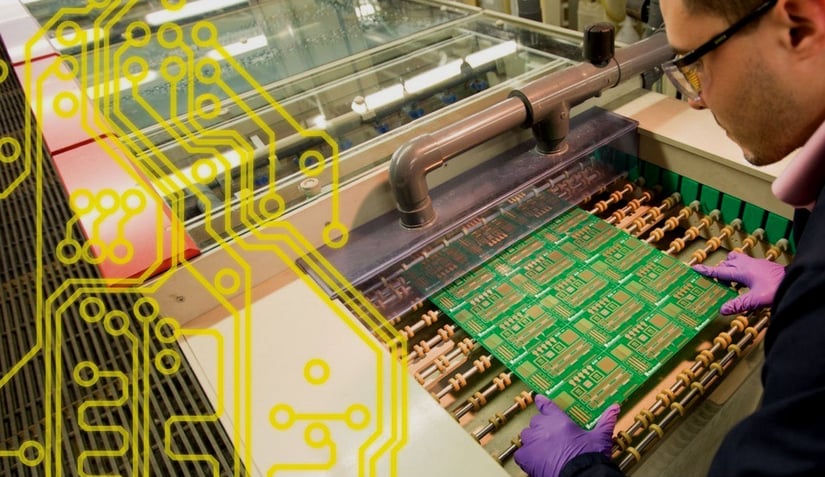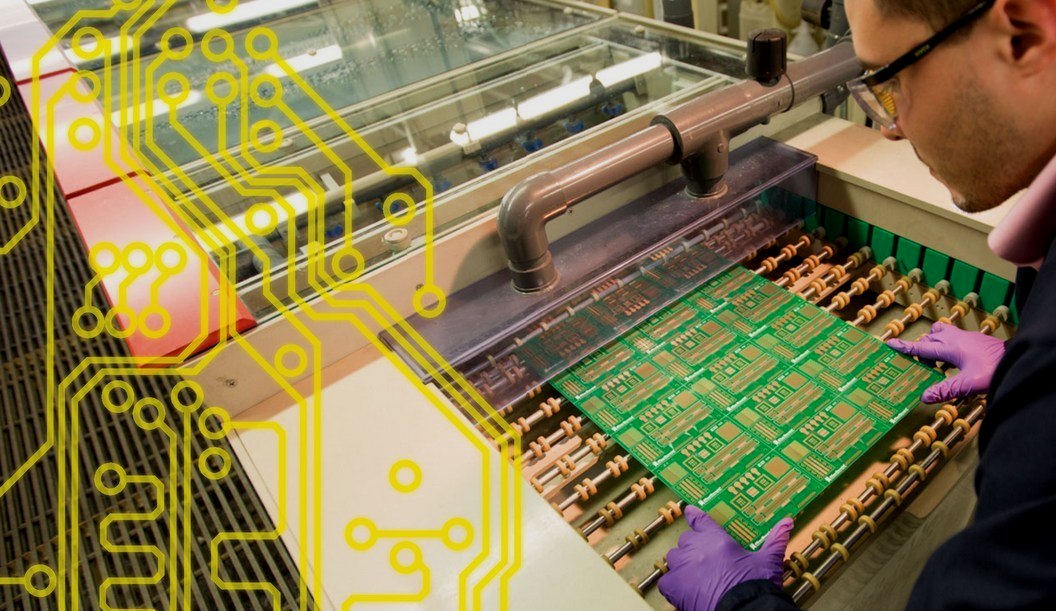Heller Search: What is Platform Specialty Products?
 Stuart Kippelman: Platform Specialty Products is a global producer of specialty chemicals and a provider of technical services. We’re publicly traded (NYSE: PAH) but as a company, Platform is really only a few years old. It was built through the acquisition of six companies. One way to look at it is that we are a $3+ billion startup with 8,000 employees. I joined the company as CIO in November of 2015.
Stuart Kippelman: Platform Specialty Products is a global producer of specialty chemicals and a provider of technical services. We’re publicly traded (NYSE: PAH) but as a company, Platform is really only a few years old. It was built through the acquisition of six companies. One way to look at it is that we are a $3+ billion startup with 8,000 employees. I joined the company as CIO in November of 2015.
Were you actively looking for a new CIO role?
I wasn’t actively looking at the time. I was CIO at Covanta Energy in New Jersey, where I had been in since 2010. Through a contact, I began to hear about the company and the exciting opportunity to work at such an interesting and growing company. As I listened to the story about this company, it was quite an easy sell even though Covanta is such a great company.
Why was it an easy sell?
Immediately, I became extremely excited about the opportunity to build a multi-billion company from scratch, virtually overnight.
I enjoy making things work out of a very challenging and complex environment. I like having to quickly learn about many different businesses. Platform is a specialty chemical company, but we have two very different segments that make up the business. Sometimes I think they couldn’t be more different, especially in terms of their IT needs. And corporate is like a third segment in many ways.
Was there an IT infrastructure from the other companies to build from?
Each of the companies that were acquired to create Platform Specialty Products were scaled for the size company that they were before, but not for being part of a $3B company. None has the infrastructure or ERP systems that we could scale up to meet our needs.
What comes first?
All of it. This is a perfect example of changing the jet engines mid-flight. There is no time for a sequential effort, or for prioritizing; it has to be done in parallel. But for me that’s the exciting part.
We are implementing a comprehensive ERP strategy, , while we continue working on integrations and realizing the synergies we will gain as a combined company. At the same time we are deploying cybersecurity, cloud infrastructure, and BI, among many other things.
There is always a limited budget, but I am working with a group of executives who understand the value IT can bring to drive the business forward. They understand the complexity, and they are giving us what we need so that we can pull this off.
It sounds like a quite a unique IT leadership challenge.
You have to be good at dealing with a very fluid environment. And by the way, this is not just an IT challenge. Many other areas of the company are also scaling very quickly.
What is it about your career experience that qualifies you for this unique challenge?
I think that many CIOs have dealt with each one of these issues separately. You have the BI initiative, the ERP discussion, security, etc., but very few have dealt with it all at the same time. I have done all of these separately myself, some at the same time, but all at the same time is a challenge.
I think it helps that I worked at Johnson & Johnson for 14 years. J&J is a highly decentralized business where you have a hundred companies asking IT for a thousand different things, all at the same time. That experience gave me the tools to deal with the simultaneous nature of IT here at Platform.
What was your plan on Day 1?
I was as transparent and realistic as I could be with the leadership of the company and all of the users, at every stage. They had to know that it would be a process to get us where we needed to go. For this to work, they had to be expecting “version one” of what IT delivered, and trust that there would be steady enhancement and improvement.
The key here would be to make quick and accurate decisions, and not spend too much time examining different variations of high end solutions. We had to be realistic.
What exactly have you delivered so far?
We have put in place a completely new IT organization, and have done a ton of blocking and tackling, such as computers, networks, email and user support. Where possible, we have integrated our many different ERPs because we are still running our business globally on these. At the same time, we are moving forward quickly with implementation of our new global ERP solution. We have also implemented security, and other business applications in several areas of the business.
What have you changed in the structure of the IT organization?
The new IT organization has consolidated IT teams from the original six companies into one. Since then, we have been changing how some roles are defined, updating skills among the team, and outsourcing or insourcing where appropriate.
What are some specific IT skills you are updating?
On the infrastructure side, we need people skilled at cloud—not the technical aspects so much as how it all fits together. Architects who know how to get the integration to work.
We have introduced new vendor management roles and skills onto the team, and we are upgrading our business process knowledge, such as order-to-cash, procure-to-pay—the common business processes.
How do you know when your IT organization is succeeding?
I think it is when the business leaders feel comfortable with their ability to run the business. When they feel in control of the information they get, in and their ability to run their critical processes smoothly and reliably every day.
In the long run, I want to become a great service organization, not just an IT department.
What new technologies do you think are the most exciting?
The Internet of things is going to become very important, especially in manufacturing. IoT is very exciting to me, and so is virtual reality. The new inexpensive consumer VR technologies can be applied to training our customers around the world.
Where does your CIO job at Platform take you on business travel?
We have hubs in North Carolina, and Connecticut. We have a large facility in Sao Paolo, and Paris and Hong Kong. We have partner companies in India, so I kind of get around.
Which destinations are your favorites?
I enjoy Sao Paolo, and who doesn’t like Paris?
Do you have an airport vice?
No real vices, but I like to get to the airport early and just take it easy. Everything here is so crazy that I prefer not to be thinking about missing my flight. It is my time to just zone out a little bit. I am not one of those people who is always on a frantic cell phone call right up until departure, if I can help it.
About Stuart Kippelman
Stuart Kippelman is SVP & CIO of Platform Specialty Products Corporation. Prior to Platform, he was SVP and CIO of Covanta Energy Corporation. Kippelman is a guest columnist on WSJ.com and a featured blogger on Computerworld.com. He holds multiple patents in data mining, and business intelligence. He is a past winner of both the CIO 100 and the ComputerWorld Premier 100 awards for IT leadership excellence.


Written by Steve Rovniak
Steve Rovniak served as Executive Director, Marketing and Media at Heller Search Associates from 2012 to 2023.



